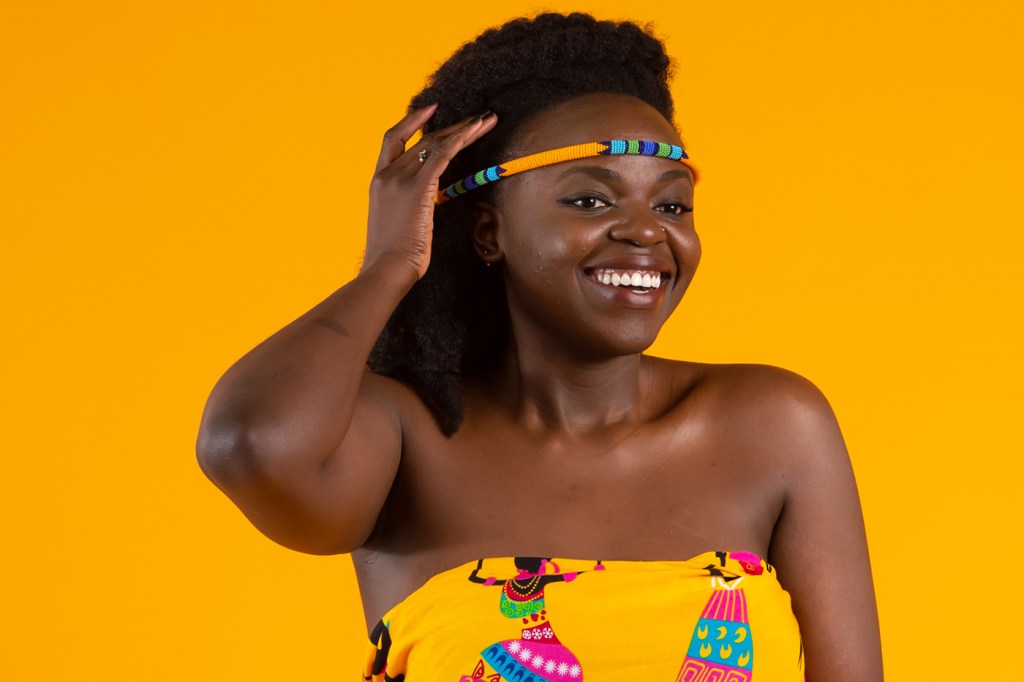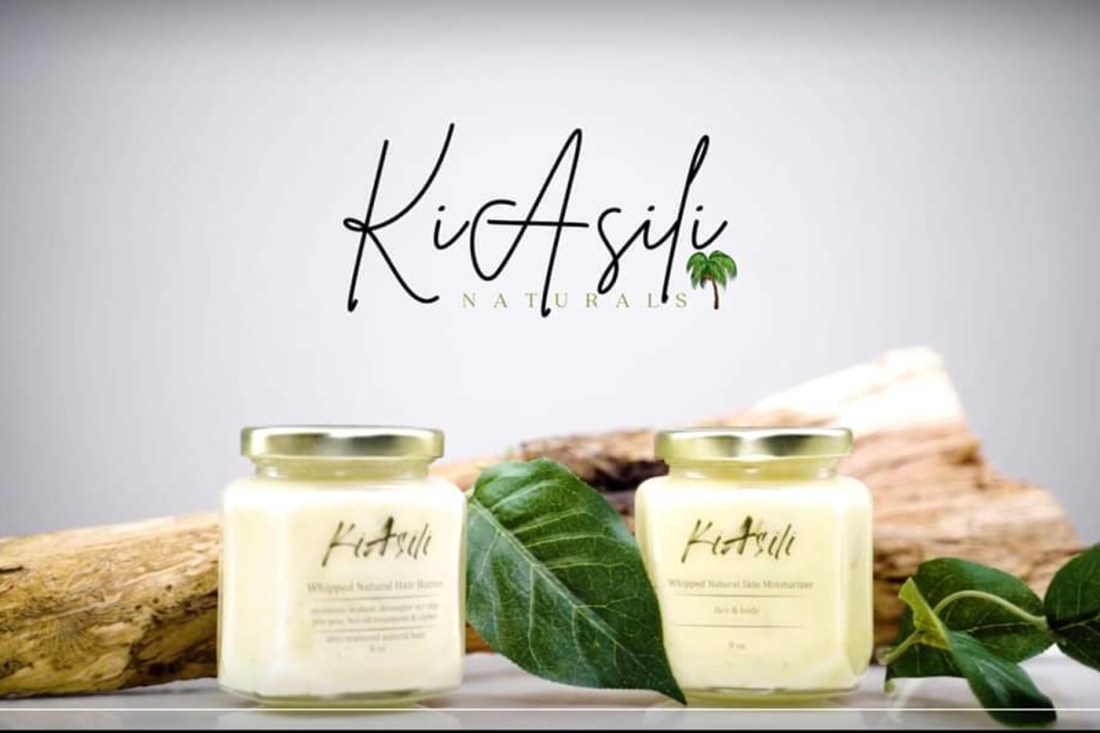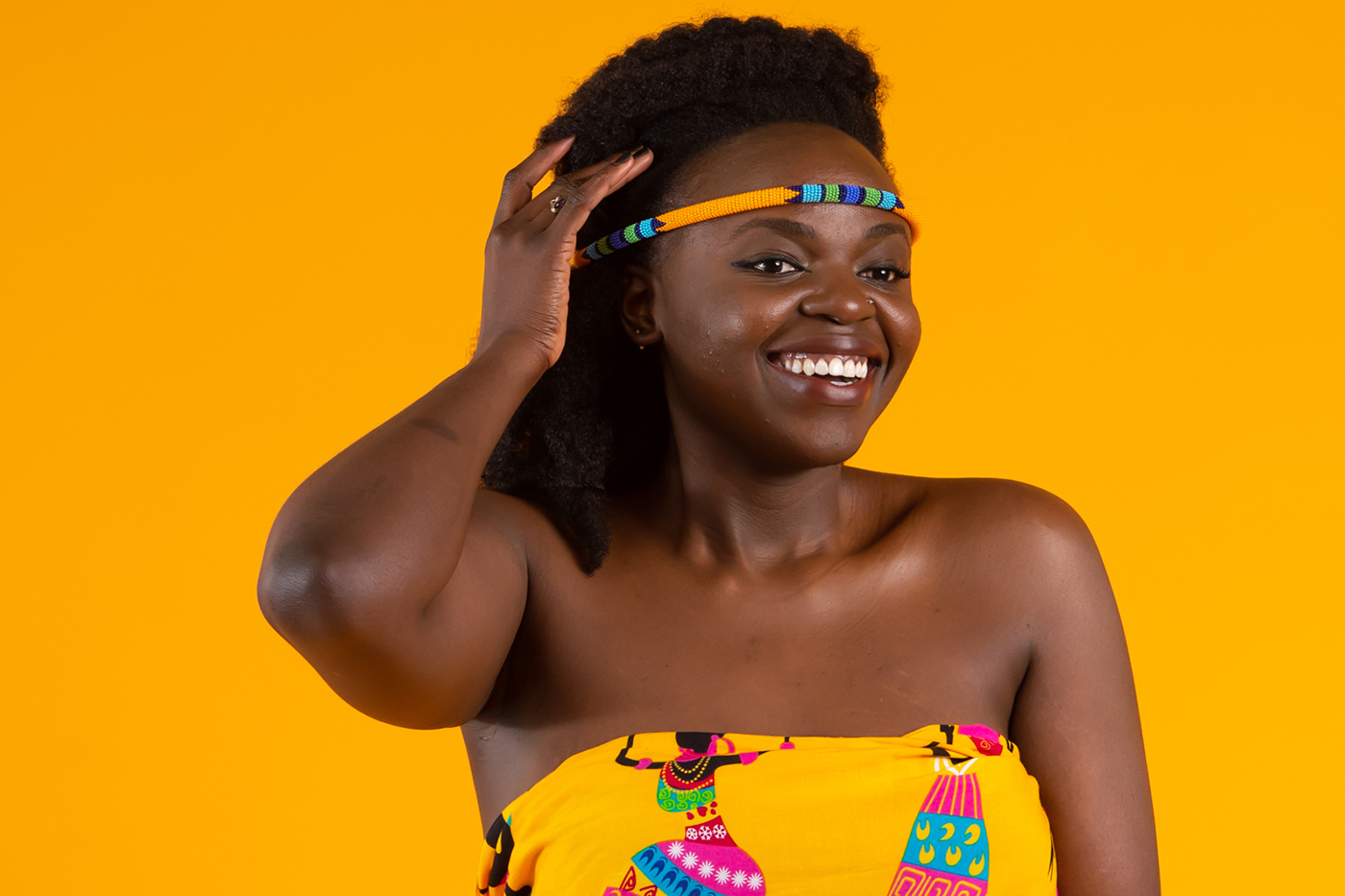Becky Mashàido’s business venture KiAsili Naturals uses science and artificial intelligence to reinvent the future of an inclusive beauty industry.

Becky Mashàido, a software engineer, entrepreneur, and Northeastern University graduate, is on a mission to disrupt the beauty industry and help consumers save money.
“The beauty industry is undoubtedly a multi-billion dollar industry, but the majority of consumers, especially women of color, still struggle to find what’s best for them,” she says. “I care about the end consumer, their experience in finding the right product and the value of their purchasing power.”
Through Northeastern University’s graduate program in computer science and her subsequent work at Google, Mashàido gained expertise in software engineering, deep learning and computer vision, which enables computers to recognize objects and people in images.
Now she is developing a tool to help consumers choose personalized hair and skin care products.
Women end up spending a lot of money on beauty products, Mashàido says, because they don’t know if they’ll see results or how their skin or hair will react to the ingredients. For black women like herself and other women with dark skin, finding the right products is especially difficult, she says, as there are few brands that cater to consumers with melanin-rich skin.
“It’s really difficult to find such products for skin and hair care, and we end up spending so much money, but it’s wasted because it doesn’t work for us,” she says.

Her new business venture, KiAsili Naturals, is using science and artificial intelligence to reimagine the future of an inclusive beauty industry that is fully committed to community empowerment.
Her efforts were recently recognized with a Northeastern Women Who Empower Award.
Mashàido grew up in a marginalized community on an East African island off Zanzibar in the Indian Ocean. Educational opportunities there were limited, she says, especially for girls, who often stayed at home instead of going to school.
But Mashàido loved school, especially mathematics, and often encouraged other girls in her community to pursue an education. However, she did not know much about computer science at the time.
That changed when she moved to the USA to study applied mathematics. It was then that she was given her first computer.
Despite having no programming experience, she quickly developed her skills and fell in love with the possibilities of this field. During her master’s studies at Northeastern University, Mashàido focused on deep learning – a subfield of AI inspired by neurobiology.
Her research has covered a variety of application areas, from the medical field to computer vision, robotics, hardware and cybersecurity.
While studying at Northeastern University, Mashàido completed three internships – one as a systems engineer at Google and two in deep learning at the University of Texas and the University of California, Berkeley. She says she enjoyed working at Google, where she built real systems that impact billions of users.
Since moving to the United States, Mashàido has struggled to find suitable oils for her natural afro-textured hair, which has tightly coiled strands and is more brittle than other hair types. At home, her mother used native African oils that left her hair soft, strong, healthy and easy to manage.
“I tried various products from the mainstream beauty industry, which, although expensive, are just diluted versions of African oils,” says Mashàido. “My hair became dry, brittle, difficult to manage and growth was stunted.”
So she set out to find the best African oils for herself. She traveled all over Africa to find the most authentic ingredients – coconut oil from East Africa, shea butter from West Africa and olive oil from North Africa. She made direct contact with women’s cooperatives in different countries who produced the oils using traditional methods.
When her family and friends saw how effective her homemade blends were, they encouraged her to turn it into a business. Her signature hair oil blend became KiAsili Naturals’ flagship product.
The company’s name refers to the practice of going back to where it all began, says Mashàido, and the authentic way African foremothers cared for their natural hair. KiAsili (pronounced kee-aah-slee) is derived from the root -asili, which loosely translates to “indigenous,” “of native origin” or “source” in Swahili and in the Bantu language family – a vast group of hundreds of languages spoken in sub-Saharan Africa.
Each order is made fresh by hand, says Mashàido, financially supporting the African women who harvest the natural ingredients and prepare the oils.
But Mashàido’s entrepreneurial vision is not limited to developing high-quality, culturally authentic products. She uses her technical expertise and passion for solving real-world problems to develop an AI-powered tool that takes the guesswork out of choosing hair and skincare products.
Using computer vision and deep learning algorithms, the tool will provide users who submit images and videos with tailored recommendations based on their hair texture and specific needs.
“The goal is to eliminate the learning curve so people don’t waste time and money on products that don’t work,” she says.
Mashàido points out that her company is still in its early stages. The processes are still being refined and a small team takes care of the day-to-day operations.
“I do everything from marketing to managing the website. It’s challenging, but I’m driven by the impact I want to make,” she says.
What really sets Mashàido apart is her commitment to encouraging more female engineers, scientists and mathematicians around the world. She mentors young black girls interested in STEM subjects, both privately and through organizations she founded, such as Mvaha wa Chiche (My Little Sister), She Code Africa and Zawadi Africa.
“I didn’t have access to computer science growing up, so I need to change that so the next generation can experience better technological advancements and breakthroughs than we do today,” she says. “I mentor girls from elementary school through to the workforce, raising the next generation of female leaders in engineering, math, science and computer science; all from my own failures and successes.”
University news
Latest Stories






